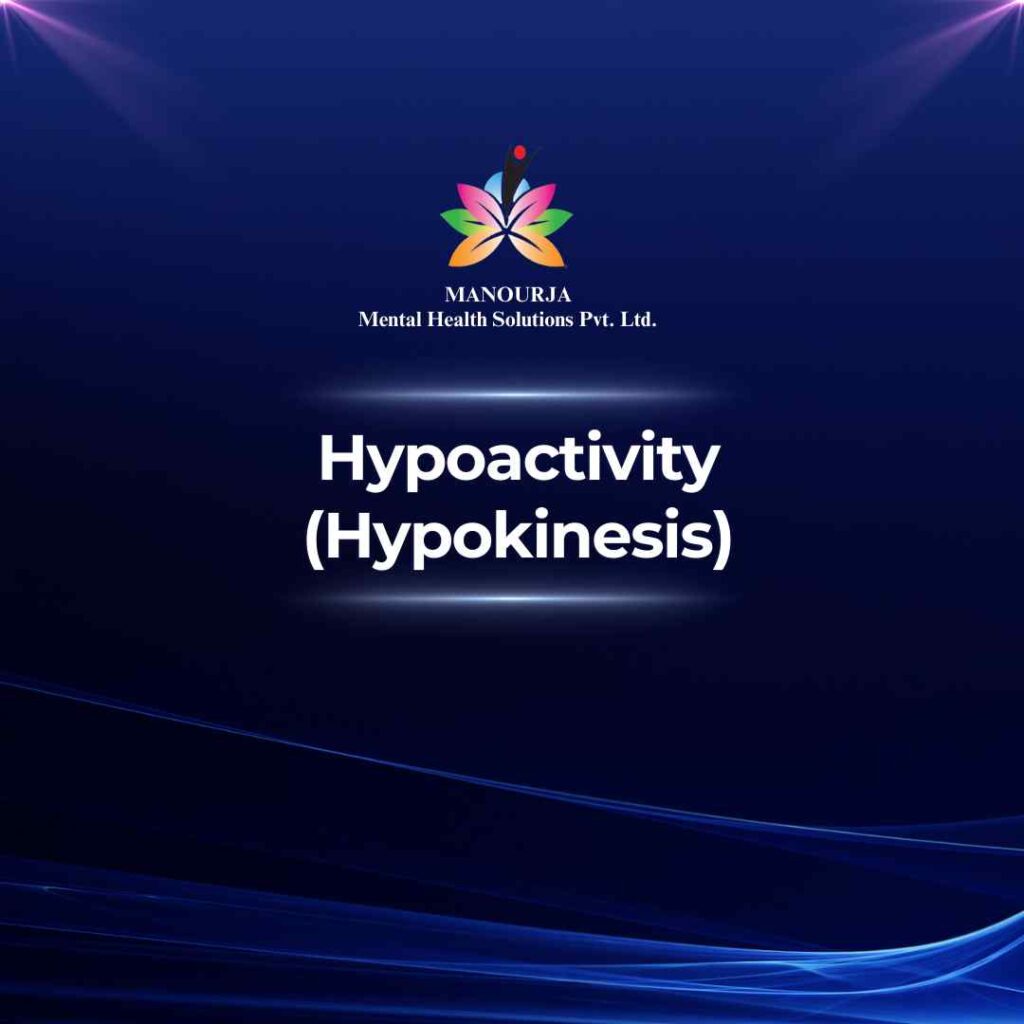Hypoactivity (hypokinesis)

Hypoactivity (hypokinesis) refers to a reduced level of physical activity or movement, which can manifest as a sign or symptom in various mental health conditions. It contrasts with hyperactivity, where there is an excess of movement and restlessness. Hypoactivity can present differently depending on the underlying cause and severity, and it is often assessed by observing a person’s motor behavior and level of engagement in daily activities.
Signs and Symptoms in Mental Illness
Hypoactivity can be observed in several mental health disorders, including:
- Depression: In major depressive disorder (MDD), individuals may experience reduced physical movement and overall lethargy. They may have difficulty initiating activities, experience extreme fatigue, and lack interest in previously enjoyed activities.
- Schizophrenia: Hypoactivity can be seen in the negative symptoms of schizophrenia, such as avolition (lack of motivation), anhedonia (inability to experience pleasure), and social withdrawal. Individuals may exhibit decreased spontaneous movement and reduced engagement in social interactions.
- Parkinson’s Disease: Although primarily a neurological disorder, Parkinson’s disease can lead to hypoactivity due to motor symptoms such as bradykinesia (slowness of movement), rigidity, and postural instability.
- Hypothyroidism: While not a mental illness per se, hypothyroidism can cause symptoms similar to depression, including hypoactivity, fatigue, and reduced motivation.
How Hypoactivity is Assessed and Treated
Assessment of hypoactivity involves clinical observation, patient self-reporting, and sometimes objective measures of activity levels. Treatment approaches depend on the underlying condition:
- Psychiatric Disorders: Treatment may involve a combination of pharmacotherapy (medications) to manage symptoms, psychotherapy to address underlying issues, and lifestyle modifications to promote physical activity.
- Neurological Conditions: Management typically includes medications to manage motor symptoms, physical therapy to improve movement and coordination, and supportive therapies to enhance overall well-being.
- Metabolic Disorders: Addressing the underlying hormonal imbalance through medication (e.g., thyroid hormone replacement in hypothyroidism) can alleviate hypoactivity symptoms.
Understanding hypoactivity in the context of mental illness involves recognizing its impact on daily functioning and quality of life. Early detection and intervention can help improve outcomes and support individuals in managing their symptoms effectively.
At MANOURJA, we believe in the transformative power of counseling. Our experienced therapists offer a safe and supportive space where you can explore your thoughts, emotions, and challenges. Through personalized counselling sessions, we’ll work together to develop coping strategies, build resilience, and achieve lasting positive change. Discover the path to a healthier, happier you with MANOURJA counselling services.
MANOURJA Rehabilitation Services
At MANOURJA, we’re dedicated to helping you in rebuild your life, after difficult times. Our rehabilitation services focus on understanding what you need to move forward, whether you’re recovering from addiction, trauma, or any psychological – social challenges. We create personalized plans, that are all about helping you, regain your strength and find hope again. With a caring team by your side, you’ll have the support to make real progress and take steps toward a brighter, healthier future.
